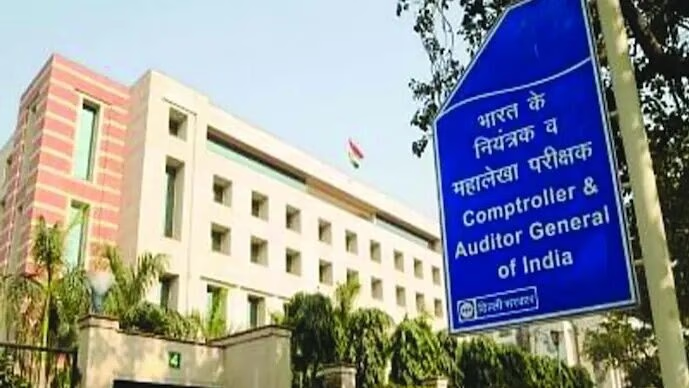The Delhi assembly session, amidst a changed political landscape, kicked off with fervor. Under the leadership of the new Chief Minister, Rekha Gupta, delayed CAG reports were presented, focusing on the significant liquor policy revelations.
The CAG audit report uncovered substantial losses in Delhi's liquor policy from 2017 to 2021, indicating a 20 billion INR deficit due to policy changes. The report scrutinized liquor regulation and supply from 2017-18 to 2021-22, reviewing the excise policies as well.
Read More: Over 20 Billion INR Loss from Changes in Delhi's Liquor Policy, Major Revelations from CAG Report
Although the revised policy was revoked in September 2022, the CAG report accuses the ruling Aam Aadmi Party of significant discrepancies, leading to considerable state revenue loss. This has sparked substantial controversy.
Consistently, CAG reports have historically triggered both public and political uproar. Previous reports have compelled government clarifications and faced opposition backlash, including ministerial resignations or imprisonments based on findings.
Let's explore previous instances when CAG reports turned into major discussion points and significantly influenced governance.
Read More: Saved 12% on Dwarka Expressway, CAG's Assessment Incorrect: Nitin Gadkari
When Kejriwal Targeted Sheila Dikshit Over CAG Reports
Between 2013-2014 and 2015, Kejriwal and the Aam Aadmi Party launched attacks on Congress, specifically targeting Sheila Dikshit's administration using the CAG report findings. Using the CAG revelations, Kejriwal accused the Dikshit government of corruption, including embezzlements in a 90 crore INR street lighting project.
The CAG reports served as foundational evidence against Sheila Dikshit during the Delhi Assembly elections, pointing out governance failures and malpractice.
Read More: CAG Hits BJP Government on AAP... Repercussions for Kejriwal and Atishi?
When A Raja Was Jailed Over a CAG Report
The notorious 2G spectrum allocation scandal erupted in 2010 when CAG's report highlighted a significant economic loss under a 'first-come, first-served' policy rather than competitive bidding. This resulted in a huge revenue deficit, estimated at 1.76 trillion INR or according to CBI, closer to 309.84 billion INR.
The Supreme Court, citing CAG's findings, cancelled all telecom licenses granted under Raja's tenure, initiating legal proceedings. Raja, eventually acquitted for lack of evidence, spent significant time in custody.
Read More: Government and Opposition Clash Over CAG Report in Delhi Assembly
In December 2017, a court cleared former Telecom Minister A. Raja and others of all charges, citing insufficient evidence.
Gujarat CM's Foreign Visits Scrutinized
The 2001 CAG report on Gujarat's Chief Minister Keshubhai Patel revealed personal foreign trips disguised as official, receiving undue government recognition. Uncovering Patel's misuse of funds during UK, USA, and EU travels brought scrutiny.
The report urged action against inaccurate entertainment allowances received by accompanying officials.
Read More: Understanding BJP's Strategy as Rekha Gupta Addresses Kejriwal-era CAG Reports
Feeding Ghost Patients in a Medical College
In a shocking revelation, CAG reported the Guwahati Medical College was feeding phantom patients, leading to financial misuse of 319 million INR. These findings laid bare discrepancies in patient and expense records.
The CAG highlighted food supplies for nonexistent patients, mandating closer scrutiny on usage and financial accounting practices.
Read More: 'Palaces', Mohalla Clinics, and Liquor Policies... The Chaos Before the Presentation of CAG's 14 Reports
Duplicate Aadhaar Payments in Jharkhand
CAG audits in Jharkhand exposed anomalies in the e-Kalyan portal. The report, spanning 2017-2021, identified fraudulent beneficiaries receiving scholarships and pensions, including replicated Aadhaar payments.
Highlighting financial inconsistencies within Scheduled Castes, Tribes, and minority schemes, the report calls for vigilant policy adherence and transparency.
The CAG remains a fundamental auditor for governance, responsible for evaluating policy implementation and integrity. Reports are scrutinized by parliamentary committees, driving accountability in policy execution.




